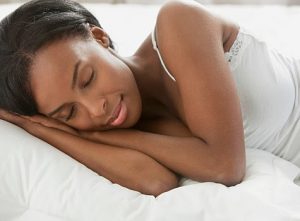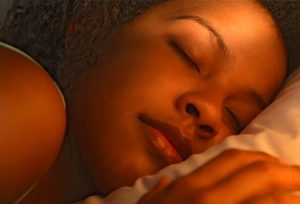Waking up minutes or even hours before the alarm is not a new phenomenon, sleep experts tell CNN, but it can cause people incredible discomfort. The additional stress factors from the ongoing pandemic have exacerbated our collective sleeping struggles.
More than a third of Americans get fewer hours of sleep a night than the minimum recommendation of seven hours, according to the US Centers for Disease Control and Prevention. According to the National Institute of Health, studies across the globe show anywhere from 10% to 30% of the population struggles with insomnia, defined as the consistent difficulty falling asleep and the inability to return to sleep after going to bed.

More than a third of Americans get fewer hours of sleep a night than the minimum recommendation of seven hours
Those experiencing insomnia can have a combination of “nocturnal awakenings” and what’s categorized as “early morning awakenings,” according to a 2009 study from the Stanford Sleep Epidemiology Research Center and other universities. The study finds that some people may experience early awakenings without other insomnia symptoms such as “difficulty initiating sleep,” “nocturnal awakenings” and “non-restorative sleep,” meaning sleep that isn’t substantial even with the recommended hours.
“That’s a little bit of a myth that insomnia is only falling asleep,” said sleep specialist Rebecca Robbins, an instructor in the Division of Sleep Medicine at Harvard Medical School. “A common complaint is excessive sleepiness and waking up and feeling very unrefreshed.”
While insomnia treatments include cognitive behavioral therapy and medication, other daily tips can have an impact on early morning awakenings. An acute sleep disorder could be at play for someone not experiencing chronic insomnia but waking up early.
“Sleep is an artifact of our waking lives,” Robbins said. “If you’re experiencing hardship, trauma or something unsettling happening … those events loom large for our sleep.”
The constant waking up before that daily sound is coupled with an immense frustration about not falling back asleep. The stress can feel isolating and all-consuming, taking more precedence than the initial sleep problem.
“You start ruminating about it, and then you start doing things that make insomnia worse,” said Dr. Rajkumar Dasgupta, associate professor of clinical medicine at the University of Southern California Keck School of Medicine in Los Angeles. “Don’t start telling yourself … ‘I’m going to make myself stay in bed until I fall asleep.’ “
So, what can you do about it?
Don’t watch the clock or your phone
If you wake up suddenly — in what feels like the early morning hours — resist checking the clock. Finding out it’s 3 a.m. when you set the alarm for 7 a.m. can cause increased stress about the hours of sleep you hoped to attain.
“The anxiety and the frustration build. … Clock watching becomes habitual, and that habitual response of frustration and anxiety also causes a stress response in the body,” said sleep specialist Wendy Troxel, a senior behavioral scientist at Rand Corp.

Emotions affect us every minute and every second. When you feel anxious at work, you’re more likely to make mistakes and it’s harder to come up with great ideas.
When the stress takes precedence, cortisol levels increase, and the body becomes alert. This process is counterproductive for maintaining drowsiness; the brain becomes hyper-engaged.
“You look at the clock. It’s 3 o’clock in the morning like clockwork, and immediately tension might grit your teeth. You think of all the demands … how awful it is going to be when you’re sleep-deprived,” Troxel said. “All of this mental processing and agitation is antithetical to the sleep state. It’s making you more alert and aroused … versus sending the signal to the brain that it’s OK to drift.”
If your alarm is on the phone, checking the clock can pose an even more significant trigger. Consider getting an alarm that isn’t attached to your phone.
“Our phone is our strongest signal to our waking lives,” Troxel said. “You’re getting the light exposure from your phone, which can directly stimulate your circadian signal for alertness. The content of what we are consuming on our phones can be very activating, whether it’s scrolling through social media or reading the news. These can all stimulate emotional states that are more activating rather than relaxing.”
Get out of bed
So paradoxically, experts say to get out of bed. Yes, even at 3 a.m.
“Abandon the idea of getting back to sleep,” Troxel said. “When you do that, when you let the pressure go that sleep isn’t so effortful, sleep is more likely to come back.”
In a stimulus control technique, you can distract your brain with a mundane task to help bring back drowsiness faster than staying frustrated in bed.
“As soon as that little voice comes on, change the environment. Get out of bed,” Robbins said. “Try to reset your brain and keep the lights low.”
Mentally assigning the bed with sleeping helps people associate positive sleep thoughts with their space. Leaving the room when agitation sets in can separate the frustration from the bed.
Anything from reading a book to knitting or listening to soft music (but not using a phone) can positively distract the brain. Once drowsiness sets in again, head back to bed. –
cnn.com



